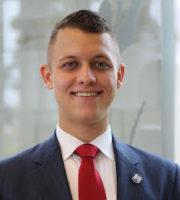
‘Gender binary’ needs to be ‘dismantled’
Nearly two years after its launch, a prestigious Ivy League university is refusing to discuss a campus program meant to combat “patriarchy” and “toxic notions of masculinity” by having students educate each other about masculinity.
Brown University’s BWell Health Promotion uses the Masculinity Peer Education Program to help students “unpack male privilege” and “acknowledg[e] harm and promot[e] healing.” That program states that “the gender binary is a social construct that needs to be dismantled.”
“We created the Masculinity Peer Education program because most folks have never thoughtfully examined what healthier norms of masculinity can and should look like. That is particularly true for folks who hold considerable societal privilege. Modern society is quick to bestow unearned privilege on men. There is nothing in place to teach men––young men especially––how to avoid abusing that privilege or how to leverage it for good,” the page states.
The program appears to be nearly two years old. Campus Reform reported in March of 2018 that the program had been launched in the fall of 2017 off of a previous effort called “Masculinity 101.” Yet in spite of the program’s two-year stint on campus, school officials were unwilling to discuss it.
The College Fix made numerous attempts to reach Marc Peters, listed as the program’s designated contact. The only responses received from Peters were automated emails stating he was out of the office and would return Aug. 13. Peters did not respond to subsequent messages after that date.
The Fix also reached out repeatedly to Mark Bodner and Quentin Thomas, listed as contributing authors of the program’s curriculum. Neither responded to multiple requests for comment.
In a 2018 op-ed about the program in The Brown Daily Herald, Quentin Thomas said the program “introduces various organizations on campus to discussions about masculinity and helps to create a healthier environment in group spaces.”
“By openly exploring masculinity and the ways in which we are socialized to adhere to toxic expectations, men will be able to understand the role they play in sexual assault on college campuses and work to change that role, while also working to embolden male survivors of sexual assault to share their experiences,” Thomas wrote.
Masculinity Peer Education is listed as part of the school’s efforts to “unlearn toxic masculinity.”
“Men don’t have a lot of spaces to have open and honest conversations about the different things that they are dealing with, like how they grapple with emotions or deal with conflict. BWell is investing in creating safe spaces for men to unpack all of the things they have learned about masculinity and what it means to be a man,” the website states.
Additionally, the “Unlearning Toxic Masculinity” page links to a video series titled “Conversations On Masculinity” published on the Brown Health & Wellness YouTube account.
“I mean especially just looking at Brown in general, as a primarily white institution, with a small but still present Greek influence, there’s still a lot of unhealthy, like there’s very much unhealthy, toxic masculinity,” one participant in the video series states.
“Even everyday things, like walking on the street, like…if I have a white male in front of me, and I’m walking, there’s the expectation that I’ll move…It’s these small micro-aggressions that I think is very much present on campus,” he continues.
MORE: At Brown University, mixed messages on illegal drug use
MORE: Brown University provides ‘safe spaces’ … for men
IMAGE: vchal / Shutterstock.com
Like The College Fix on Facebook / Follow us on Twitter






Please join the conversation about our stories on Facebook, Twitter, Instagram, Reddit, MeWe, Rumble, Gab, Minds and Gettr.